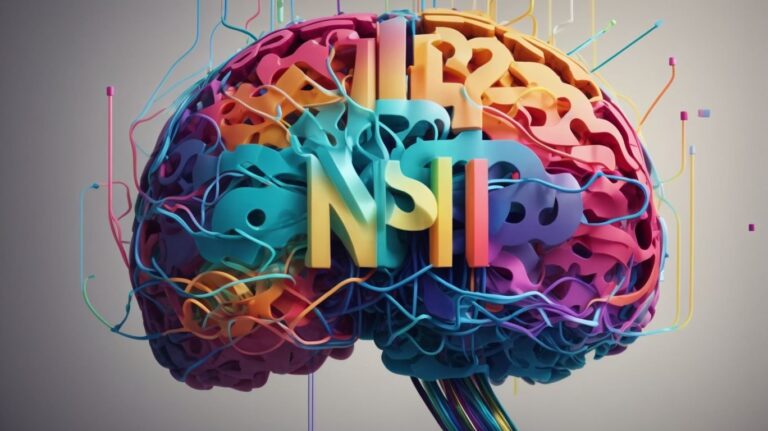Exploring the dynamic intersection of psychology and computer science unveils a world of innovation and advancement. This article delves into the key areas of overlap between these two fields, highlighting how psychology has influenced computer science and vice versa. From the application of psychological principles in computer science to the impact of technology on traditional methods of psychological research, we will explore the benefits, drawbacks, and ethical concerns of this intersection.
Join us as we envision the future of this evolving intersection and its profound impact on society and individuals.
Contents
- 1 What Is the Intersection of Psychology and Computer Science?
- 2 How Has Psychology Influenced Computer Science?
- 3 How Has Computer Science Impacted Psychology?
- 4 What Are the Benefits of Combining Psychology and Computer Science?
- 5 What Are the Potential Drawbacks of This Intersection?
- 6 What Is the Future of the Intersection of Psychology and Computer Science?
- 7 Frequently Asked Questions
- 7.1 1. What is the intersection of psychology and computer science, and what impact does it have?
- 7.2 2. How does understanding psychology help in the development of computer science?
- 7.3 3. What is the role of computer science in psychology research?
- 7.4 4. How has the intersection of psychology and computer science influenced the development of artificial intelligence?
- 7.5 5. What are some practical applications of the intersection of psychology and computer science?
- 7.6 6. How can the collaboration between psychologists and computer scientists benefit society?
What Is the Intersection of Psychology and Computer Science?
The intersection of psychology and computer science represents a captivating blend of two distinct yet interconnected disciplines that converge to explore the human mind through technological advancement.
This unique fusion brings together the depth of understanding human behavior from the realms of cognitive science, neuroscience, and computer technology. A key aspect of this interdisciplinary collaboration is the integration of affective computing, a field that focuses on developing systems capable of recognizing and responding to human emotions. Leveraging tools such as machine learning and artificial intelligence, researchers are pushing boundaries in creating innovative solutions to study and replicate human-like behaviors. By bridging these disciplines, new insights are gained into the intricacies of human cognition and the potential applications in various fields such as healthcare, education, and human-computer interaction.
What Are the Key Areas of Overlap?
The key areas of overlap between psychology and computer science encompass research methodologies, cognitive psychology principles, affective computing applications, and software engineering practices.
When exploring the confluence of psychology and computer science, researchers often delve into the development and implementation of computational models that simulate human cognition. These models, based on insights from cognitive psychology, offer valuable tools for studying how individuals think, reason, and make decisions.
Moreover, user studies play a crucial role in understanding human-computer interactions. By collecting empirical data on user behavior, preferences, and responses, researchers can refine software interfaces to enhance user experience and usability.
How Has Psychology Influenced Computer Science?
Psychology has significantly influenced the field of computer science by providing insights from cognitive psychology that enhance the development of computational models and user-centric software solutions.
This connection between psychology and computer science is particularly evident in the realm of human factors and experimental research. Understanding how individuals perceive, interact with, and process information has paved the way for more intuitive interfaces and streamlined user experiences in software development. By incorporating principles from cognitive psychology, developers can create systems that align more closely with human cognition, resulting in increased efficiency and user satisfaction. The Intersection of Psychology and Computer Science: Impact and Influence.
What Are Some Examples of Psychological Principles Used in Computer Science?
Psychological principles have been harnessed in computer science to develop interventions based on emotional states, such as adaptive tutoring systems that personalize learning experiences for individuals.
This integration of psychological principles in computer science applications plays a crucial role in educational initiatives.
For instance, emotional intelligence algorithms are utilized in adaptive tutoring systems to gauge student emotions and tailor the learning pace accordingly. By recognizing when a learner is frustrated, bored, or engaged, these systems can modify the content or adjust the difficulty level, enhancing student retention and performance. This ensures that the learning experience is not only interactive but also conducive to individualized progress.
How Has Computer Science Impacted Psychology?
Computer science has revolutionized the field of psychology by enabling advancements in robotics, signal processing techniques, and machine learning algorithms that enhance research methodologies and user studies.
This fusion of computer science and psychology has paved the way for more sophisticated studies that delve into understanding complex human behaviors and emotions. Through the integration of cognitive psychology faculty and their expertise, research projects have flourished to uncover deep insights into the workings of the human mind.
What Are Some Applications of Computer Science in Psychology?
Computer science applications in psychology range from enhancing human-computer interaction experiences to conducting insightful user studies that delve into cognitive psychology principles for a deeper understanding of human behavior.
Visual design plays a crucial role in creating interfaces that are intuitive and engaging for users, integrating principles from both computer science and psychology.
Empirical methods are employed to gather data and analyze user interactions with software and hardware, aiding in the development of more user-friendly products.
The advancements in human-computer interaction have led to the creation of virtual reality environments for therapeutic purposes in psychological treatments, showcasing the potential for technology to enhance mental health interventions.
This integration of computer science and psychology opens up new avenues for research and innovation, providing valuable insights into human cognition and behavior.
What Are the Benefits of Combining Psychology and Computer Science?
The amalgamation of psychology and computer science yields numerous benefits, fostering collaboration that drives an innovative approach to intervention strategies and adaptive tutoring models.
This interdisciplinary fusion enables the exploration of human behavior using computational techniques, allowing for a deeper understanding of cognitive processes and decision-making mechanisms.
By leveraging the expertise of both fields, professionals can develop tailored interventions that are more effective and personalized, leading to improved outcomes for individuals in need of psychological support.
In addition, the collaboration between psychologists and computer scientists often results in the creation of cutting-edge technology for educational settings, revolutionizing the way students learn and educators teach.
How Does This Intersection Improve User Experience?
The intersection of psychology and computer science enhances user experience through thoughtful visual design, typography considerations, and the seamless integration of technology that caters to the learning process and emotional states of individuals.
Visual design plays a crucial role in capturing the user’s attention and guiding their interaction with the interface. Typography elements, such as font choice and spacing, influence readability and convey the tone of content. By incorporating principles from psychology, designers can create layouts that optimize information processing and engagement.
The integration of technology, including advancements in software engineering, allows for personalized experiences tailored to individual preferences and needs. These technological enhancements not only streamline user interactions but also adapt to users’ emotional states, providing a more empathetic and supportive digital environment.
How Does It Enhance Research and Data Analysis?
The intersection of psychology and computer science enhances research methodologies through experimental research designs, insightful user studies, and the integration of artificial intelligence for advanced data analysis in understanding human behavior.
Cognitive psychology plays a key role in this fusion, providing valuable insights into how the human mind processes information and makes decisions. By combining principles of cognitive psychology with machine learning algorithms, researchers can analyze vast amounts of data to identify patterns and trends that offer deeper understanding of human behavior. This innovative approach not only enhances the accuracy of research findings but also opens up new possibilities for exploring complex psychological phenomena through computational analysis.
What Are the Potential Drawbacks of This Intersection?
While the integration of psychology and computer science offers immense potential, it also raises ethical concerns stemming from the use of technology in psychological contexts, challenging traditional methods of psychological research and analysis.
One significant ethical concern is the potential invasion of user privacy when technology is employed in psychological studies. Research projects reliant on digital tools may inadvertently expose personal data, leading to confidentiality breaches and trust issues among participants. This can hinder the validity and reliability of findings, as participants may withhold sensitive information due to privacy fears.
The reliance on technology in psychological research could render traditional research methods obsolete. User studies conducted through digital platforms may lack the depth and nuance achievable through face-to-face interactions, affecting the quality of data collected and potentially skewing research outcomes.
What Ethical Concerns Arise from the Use of Technology in Psychology?
The utilization of technology in psychological interventions raises ethical concerns surrounding the implications of emotional intelligence algorithms, research integrity, and the potential biases that may influence outcomes in human-computer interaction studies.
One of the key aspects of this ethical dilemma is the reliance on affective computing, which involves the analysis of emotions through technology. Affective computing aims to develop systems that can recognize, interpret, and respond to human emotions, but the accuracy and privacy concerns associated with such algorithms pose significant ethical dilemmas.
The use of empirical methods in psychological research raises questions about the validity and reliability of the data collected. Researchers must navigate the challenges of ensuring their studies accurately represent the complexities of human behavior while avoiding biases that could skew the results.
How Does This Intersection Affect Traditional Methods of Psychological Research?
The intersection of psychology and computer science disrupts traditional methods of psychological research by introducing innovative tools and methodologies that redefine the roles of individuals such as air traffic controllers, pilots, and ship captains in human-computer interaction scenarios.
One of the key aspects of this transformation lies in the integration of robotics and signal processing technologies, which revolutionize how professionals in these fields interact with their work environments. By leveraging advanced algorithms and automation, these professionals can now make more informed decisions based on real-time data analysis and predictive modeling, enhancing safety and efficiency. The fusion of psychology and computer science enables the development of cutting-edge simulations and training programs that provide valuable insights into human behavior in high-pressure situations, ultimately improving overall performance and decision-making processes
What Is the Future of the Intersection of Psychology and Computer Science?
The future of the intersection between psychology and computer science holds promise for groundbreaking educational initiatives that leverage technological advancements to enhance the learning process and foster emotional intelligence in individuals.
As we delve deeper into the possibilities that arise from this fusion, research projects are already exploring innovative ways to combine insights from both realms. Cognitive psychology faculty are at the forefront of these endeavours, envisioning computer algorithms that can detect and respond to emotional cues in students, thereby personalizing their educational experience. Through this collaboration, the aim is to not only improve academic performance but also nurture crucial skills such as empathy and self-awareness.
What Advancements and Innovations Can We Expect to See?
The future advancements and innovations at the intersection of psychology and computer science are poised to revolutionize the field through interdisciplinary collaboration, fostering an innovative approach to intervention strategies and adaptive tutoring models.
With the rapid evolution of technology and the growing emphasis on evidence-based research, these collaborations are unlocking new possibilities in understanding human behavior and cognitive processes.
Researchers are looking into cutting-edge techniques such as machine learning and artificial intelligence to develop personalized interventions that cater to individual needs and learning styles in ways never before imagined.
How Will This Intersection Continue to Impact Society and Individuals?
The ongoing impact of the intersection between psychology and computer science on society and individuals will manifest through enhanced intervention approaches, adaptive tutoring systems, and technological solutions that cater to the evolving landscape of remote work environments.
As artificial intelligence continues to advance, user studies play a crucial role in refining these technologies to better serve individuals and organizations. Adaptive tutoring systems leverage intricate algorithms to personalize learning experiences, catering to diverse cognitive abilities and learning styles. The synergy between psychology and computer science has paved the way for innovative interventions that address mental wellness in digital spaces. These collective efforts are shaping a future where technology not only enhances productivity but also supports holistic well-being in remote work scenarios.
Frequently Asked Questions
1. What is the intersection of psychology and computer science, and what impact does it have?
The intersection of psychology and computer science refers to the study and application of psychological theories and principles in the development and use of computer technology. This field, also known as human-computer interaction, has a significant impact on how we interact with technology and how technology can be designed to better meet human needs and behavior.
2. How does understanding psychology help in the development of computer science?
Psychology provides insights into human behavior, cognition, and emotions, which are crucial factors in the design and development of computer technology. By understanding how people think, feel, and interact with technology, computer scientists can create more intuitive and user-friendly interfaces, leading to better user experiences and increased efficiency.
3. What is the role of computer science in psychology research?
Computer science plays a significant role in psychology research by providing tools and methods for data collection, analysis, and simulation. With the advancement of technology, researchers can now collect and analyze large amounts of data, leading to more in-depth insights into human behavior and thought processes.
4. How has the intersection of psychology and computer science influenced the development of artificial intelligence?
The field of artificial intelligence, which focuses on creating intelligent machines that can mimic human behavior, heavily relies on both psychology and computer science. Psychological principles such as learning, memory, and decision making are essential in developing intelligent algorithms, while computer science provides the technical expertise to implement these principles effectively.
5. What are some practical applications of the intersection of psychology and computer science?
The intersection of psychology and computer science has many practical applications, including the development of user-friendly software and interfaces, virtual reality for therapy and training purposes, and the use of machine learning to analyze and predict human behavior. It also has a significant impact on industries such as marketing, education, and healthcare.
6. How can the collaboration between psychologists and computer scientists benefit society?
The collaboration between psychologists and computer scientists can lead to the creation of innovative and effective technologies that can improve people’s lives. By combining their expertise, they can develop solutions to real-world problems and address societal issues such as mental health, education, and communication. This collaboration can also lead to advancements in both fields, benefiting society as a whole.



